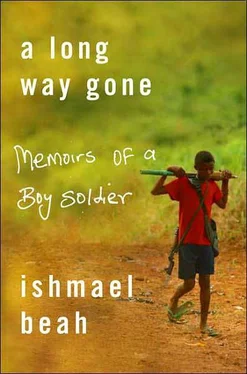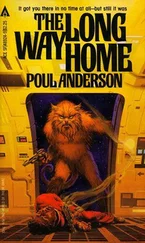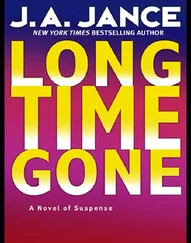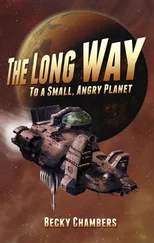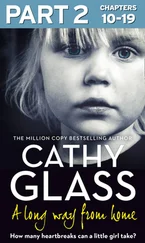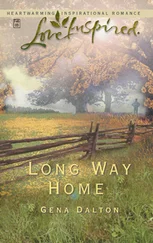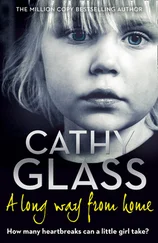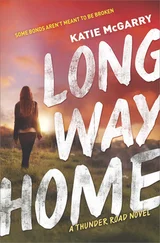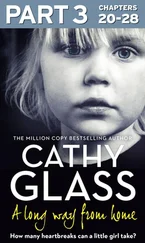I turned around and looked at Junior, whose eyes were red because he was trying to hold back his tears. He clenched his fists to keep his hands from trembling. I began to cry quietly and all of a sudden felt dizzy. One of the chosen boys vomited. A rebel pushed him to join us by smashing him in the face with the butt of his gun. The boy’s face was bleeding as we continued on.
“Don’t worry, guys, the next killing is on you,” another rebel commented, and laughed.
At the river they made us kneel and put our hands behind our heads. Suddenly loud gunshots not far away from the village were heard. Two of the rebels ran for cover behind the nearest trees; the other lay flat on the ground, aiming his gun toward the direction of the sound.
“Do you think they are…” The rebel on the ground was interrupted by more gunshots. The rebels began to fire back. Everyone scattered, running for their lives into the bushes. The rebels noticed what had happened and fired after us. I ran as fast as I could deep into the bush and lay flat on the ground behind a log. I could hear the gunshots coming closer, so I began to crawl farther into the bush. A bullet hit a tree directly above my head and fell on the ground next to me. I halted and held my breath. From where I lay, I saw the red bullets flying through the forest and into the night. I could hear my heart beat, and I had started breathing heavily, so I covered my nose to control it.
Some people were captured and I could hear them crying from whatever pain was being inflicted upon them. The sharp, harsh cry of a woman filled the forest, and I felt the fear in her voice piercing through my veins, causing my teeth to feel somehow sour. I crawled farther into the bush and found a place under a tree, where I lay for hours without moving. The rebels were still in the village, angrily cursing and shooting their guns. At some point they pretended to be gone, and someone who had escaped went back to the village. They captured him and I could hear them beating him. A few minutes later, gunshots were heard, followed by thick smoke that rose toward the sky. The forest was lit up by the fire that was set in the village.
It had been almost an hour and the rebels’ gunshots had gradually faded. As I lay under the tree thinking of what to do next, I heard whispers from behind. At first I was afraid, but then I recognized the voices. It was Junior and my friends. They had somehow ended up running in the same direction. I was still a little hesitant to call them, so I waited just to be absolutely sure. “I think they are gone,” I heard Junior whisper. I was so certain at this point that my voice involuntarily left me: “Junior, Talloi, Kaloko, Gibrilla, Khalilou. Is that you?” I spoke quickly. They got quieter. “Junior, can you hear me?” I called out again. “Yes, we are here by the rotten log,” he replied. They guided me toward them. We then crawled closer to the village to get to the path. Once we found the path, we started walking back toward the village where we had spent most of our hunger days. Junior and I exchanged a look, and he gave me that smile he had held back when I was about to face death.
That night’s journey was very quiet. None of us spoke. I knew we were walking, but I couldn’t feel my feet touching the ground.
When we got to the village, we sat around the fire until dawn. Not a word was said. Everyone seemed to be in a different world or seemed to be pondering something. The following morning, we started speaking to each other as if awakened from a nightmare or a dream that had given us a different take on life and the situation we were in. We decided to leave the village the next day and go somewhere safe, somewhere far away from where we were. We had no idea where we would go or even how to get to a safe place, but we were determined to find one. During that day, we washed our clothes. We had no soap, so we just soaked them and put them out in the sun to dry while we sat naked in a nearby bush waiting for them to be ready. We had agreed to leave early in the morning of the next day.
BEING IN A GROUPof six boys was not to our advantage. But we needed to stay together because we had a better chance of escaping the day-to-day troubles we faced. People were terrified of boys our age. Some had heard rumors about young boys being forced by rebels to kill their families and burn their villages. These children now patrolled in special units, killing and maiming civilians. There were those who had been victims of these terrors and carried fresh scars to show for it. So whenever people saw us, we reminded them of the massacres, and that struck fear in their hearts again. Some people tried to hurt us to protect themselves, their families and communities. Because of these things, we decided to bypass villages by walking through the nearby bushes. This way we would be safe and avoid causing chaos. This was one of the consequences of the civil war. People stopped trusting each other, and every stranger became an enemy. Even people who knew you became extremely careful about how they related or spoke to you.
One day, as soon as we had left the forested area of a village we had bypassed, a group of huge, muscular men sprang from the bushes onto the path in front of us. Raising their machetes and hunting rifles, they ordered us to stop. The men were the voluntary guards of their village and had been asked by their chief to bring us back.
A large crowd had gathered in the chief’s compound for our arrival. The huge men pushed us to the ground in front of them and tied our feet with strong ropes. Then our hands were pulled behind our backs until our elbows touched, making our chests tight from the pressure. I was in tears from the pain. I tried to roll on my back, but that made it even worse.
“Are you rebels or spies?” The chief stamped his staff on the ground.
“No.” Our voices trembled.
The chief became very angry. “If you do not tell me the truth, I am going to have these men tie stones to your bodies and throw you in the river,” he roared.
We told him we were students and this was a big misunderstanding.
The crowd shouted, “Drown the rebels.”
The guards walked into the circle and started searching our pockets. One of them found a rap cassette in my pocket and handed it to the chief. He asked for it to be played. You down with OPP (Yeah you know me)You down with OPP (Yeah you know me)You down with OPP (Yeah you know me)Who’s down with OPP (Every last homie)
The chief stopped the music. He stroked his beard, thinking.
“Tell me,” he said, turning to me, “how did you get this foreign music?”
I told him that we rapped. He didn’t know what rap music was, so I did my best to explain it to him. “It is similar to telling parables, but in the white man’s language,” I concluded. I also told him that we were dancers and had a group in Mattru Jong, where we used to attend school.
“Mattru Jong?” he asked, and called for a young man who was from that village. The boy was brought before the chief and asked if he knew us and if he had ever heard us speak parables in the white man’s language. He knew my name, my brother’s, and those of my friends. He remembered us from performances we had done. None of us knew him, not even by his face, but we warmly smiled as if we recognized him as well. He saved our lives.
We were untied and treated to some cassava and smoked fish. We ate, thanked the villagers, and got ready to move on. The chief and some of the men who had tied our hands and feet offered us a place to stay in the village. We thanked them for their generosity and left. We knew that the rebels would eventually reach the village.
Slowly, we walked on a path through a thick forest. The trees hesitantly swayed with the quiet wind. The sky looked as if it was filled with smoke, endless gray smoke that made the sun dull. Around sunset we arrived at an abandoned village with six mud houses. We sat on the floor of the verandah of one of the houses. I looked at Junior, whose face was sweating. He had been so quiet lately. He looked at me and smiled a little before his face resumed its dullness. He got up and walked out to the yard. Never moving, he stared at the sky until the sun disappeared. On his way back to sit on the verandah, he picked up a stone and played with it throughout the evening. I kept looking at him, hoping that we could have another eye contact and maybe he would then say something about what was going on in his head. But he wouldn’t look up. He only played with the stone in his hand and stared at the ground.
Читать дальше
